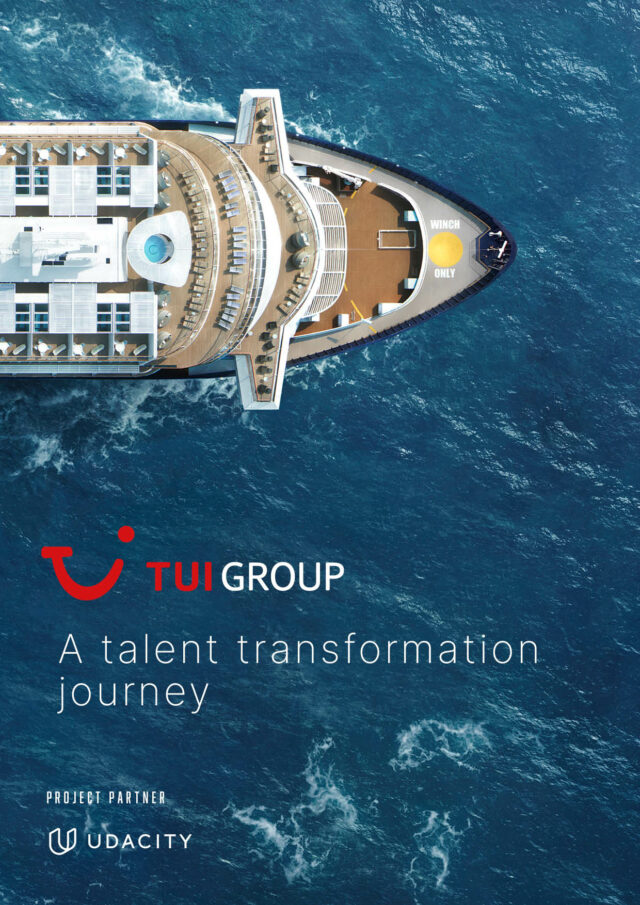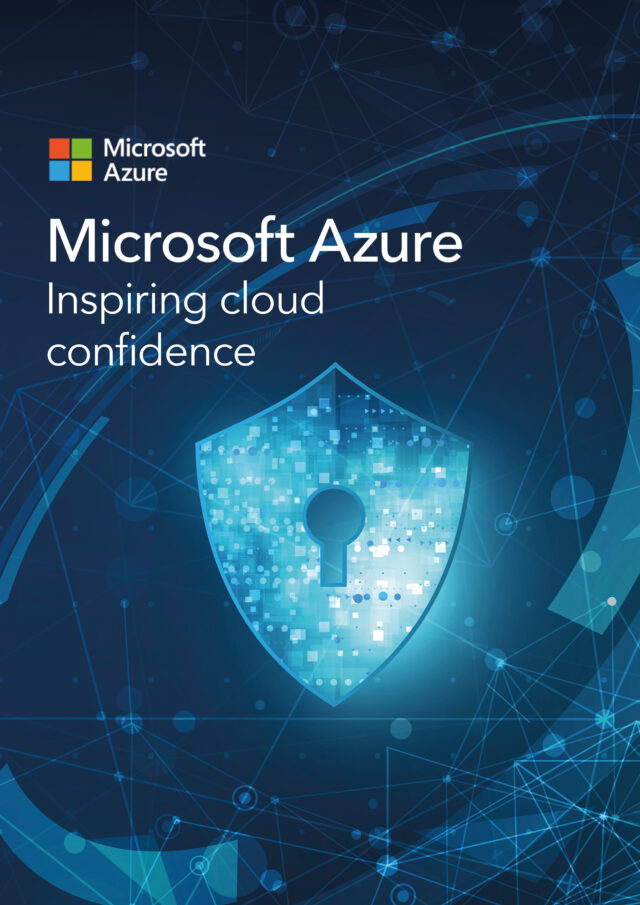A global technology leader, Infosys – headquartered in Bangalore but present and active across the world – is busy not just conquering the cloud services arena, but taking its customers with it. Even at the size it is now, as a multinational tech giant, Infosys continues to hold the hands of its clients and collaborate in order to create bespoke solutions which benefit all parties. And at the heart of the business are brilliant experts pushing the agenda that community is key.

Umashankar Lakshmipathy heads up the cloud, infrastructure and security services line businesses across the EMEA region as Senior Vice President & Regional Head, as well as being responsible for the localisation of Infosys in Europe, and the Bucharest-based technology hub. He started his 30-year career as a desktop engineer, and his entire working life has been around cloud and infrastructure. He came to the UK in 2001 to set up an infrastructure services business, and he’s been with Infosys for a decade.
Anant Adya, based in Dallas, Texas, heads up the cloud, infrastructure and security services line, as Senior Vice President and Business Head. He is also responsible for working with Infosys partners in digital working, whether hyperscalers or private cloud providers, SaaS providers, and drives joint go-to-market with them. He’s been with Infosys for 13 years and, in his words, it’s been consistently exciting.
For both Lakshmipathy and Adya, cloud is a way of life, and a foundational pillar in the digital transformation of any business. Digital transformation has never been more important; it was forging forward even without COVID-19, but the pandemic has accelerated its march to a startling degree. So why exactly is cloud so vital? For Lakshmipathy, cloud is no longer something unreachable – it’s fully landed.
“It’s now a very mature service line offering from a system integrator,” he says. “Cloud has enabled digital transformation, but cloud has also grown within its clients. It used to be an enabler for enterprises to do things in a very OpEx-centric way, but now, it’s not only about cost savings, but faster time-to-market, and taking what the client used to struggle with to a much broader platform. That’s the hybrid nature of cloud.”
Cloud maturity
Certainly, cloud is now mature enough that few doubts about its effectiveness and necessity remain, but that wasn’t the case until recently. “A few years back, most customers were looking at cloud and saying, ‘I don’t want to be in the business of running data centres’,” says Adya. “But, as we started maturing in that space – and now with the pandemic – the real need for digital transformation and how cloud and AI can contribute to that are coming into play.”
It’s about resilience, according to Adya, and business continuity and security, both for existing businesses which have been reliant on legacy systems and are being disrupted, and for startups who want to be the disruptors.

Introducing: Infosys Cobalt
For Infosys, the drive towards digital transformation has culminated in the creation of Cobalt, its exciting new innovation – the first of its kind cloud services brand. “We had a lot of services and a lot of solutions across a lot of platforms,” says Lakshmipathy. “So, we wanted an initiative to bring all of this together. The enterprise landscape is a combination of multiple public clouds, one or more private clouds, and legacy systems. To deliver on the digital transformation agenda, we saw an opportunity to help our clients by bringing all our cloud assets together – services, industry solutions and platforms – to help accelerate their cloud journey. Infosys Cobalt is helping our clients amplify innovation.”
“We wanted to bring some method to this whole narrative of cloud,” says Adya. “Last March, we started thinking about how we should integrate all the services that we offer in the cloud space and bring it under one umbrella, so everybody’s working towards one goal. It’s important to remember that cloud isn’t just about technology – we talk about cloud in terms of how we can bring value based on the 30 years of experience we have serving the customer. We were the first company in the world to launch a brand – Cobalt – around cloud services.”
Productivity and profitability
Alongside the end-to-end streamlining of all processes, Infosys Cobalt delivers major benefits in two areas for customers: productivity and profitability. In terms of productivity, Adya gives an example of a case study which says it all. “This is a healthcare company in the payer space, so these are the guys who actually pay the claims for patients,” he explains. “They keep acquiring new states, and two years ago, it used to take nine-to-12 months to onboard a new state, because as soon as they won a deal they’d have to set up the infrastructure, an app, test it, enhance it, and so on. It was hugely expensive, time-consuming, and they weren’t able to make money quickly. In 2018 we created a template for their platform to run on Azure, and it cut the implementation and onboarding timeline to six weeks.”
An incredible feat for something that used to take upwards of a year. It stands to reason, then, that with this astounding boost in productivity comes increased profitability, for both Infosys and its customers – a win/win situation. Additionally, those using Infosys Cobalt become part of what the Infosys team calls the ‘Cobalt community’ – something which boasts many benefits.
Cobalt cloud community
“We have something called the Infosys Innovation Network, where we look at what trends are coming up in various industries – retail, manufacturing, healthcare, etc.,” Adya explains. “For example, retailers are all about what they call frictionless checkouts right now, like the Apple Store has. For healthcare, it’s vaccine distribution and management. We spot these trends and we start working with customers in terms of creating new products to take to the market, and this is the Cobalt cloud community, which has what we call tech innovators and business innovators. It’s a brilliant community because it helps you spot trends that are going to come to market then pick them up quickly and roll solutions out to market.
“Let’s assume a customer comes in and says, ‘I have a business problem and I want you to help me with it’, but the solution doesn’t exist. We’d partner with that customer to co-create a solution for a business model defined by them. Plus, the Cobalt cloud community keeps looking for other solutions that are available in the market, which we can take and integrate as part of a larger ecosystem.”

Becoming cloud native
Offerings like Cobalt are the reason why cloud is easier than ever to adopt, and mean that customers don’t need to have a strong understanding of it to implement it – but it does help. “Cloud is a board agenda,” says Lakshmipathy, “so executives at every level understanding cloud is a boon for a systems integrator like us. The big advantage of becoming cloud native is that, today, more and more applications are being designed and engineered for the cloud. A few years ago, the thought process of application vendors used to be, ‘how do I create a functionally strong application?’ But that is now a given. If you don’t have a functionally strong application, nobody is going to buy it because there’s so much variety available.”
For the stragglers that are still not entirely onboard with cloud, what’s the hold-up? Often, the problem is distrust, which is rooted in security fears. However, “security is not an afterthought,” says Lakshmipathy. “It’s part of the architecture right from the start, so there’s no longer any defense for people saying, ‘I can’t go to cloud because it’s not secure’.”
Adya adds that, “it’s a very holistic approach that we take when we talk about security. Since the pandemic, if you look at security in general, some of the stats we’re seeing are mind-boggling, whether it’s about ransomware attacks, phishing or spam emails. The number of spam emails that come post-pandemic is 300-400% more than what it was, so we have to educate the customer that security cannot be an afterthought – it’s embedded into the design of whatever you do. You wouldn’t build a house and then say, ‘let me now find out if I should add a lock and key to this house’ – you think about what kind of lock and key you want at the start.”
Great power – greater responsibility
As a leader in its industry – as not only the originator of a cloud services brand, Infosys Cobalt, but the creator of the world’s largest cloud community that helps its customers lead in their own fields – the onus is now on the business to remain ahead of the game. Not that Lakshmipathy or Adya are concerned about this at all. Infosys was recently recognised as a leader in the Forrester Wave Multicloud Managed Service Providers Q4 2020, further cementing its position about its competitors.
“We’re thrilled to be in the leaders’ quadrant, but how do you consistently innovate in order to stay there?” Lakshmipathy asks. “Leaders, like us, we’re always thinking: how do we innovate? How do we remain consistent? That’s the great advantage of Infosys. I’ve worked here for 10 years and the advantage we have is it’s a company with a strong philosophy of learnability. Our next generation, cloud-based talent and learning experience platform, Infosys Wingspan, part of Infosys Cobalt, is available to all our 240,000+ users, it’s a fully-scaled training platform, and we can train 7,000 to 8,000 people at any one time.”
Cobalt itself is one major manifestation of Infosys’s ability to innovate, and to share that innovation within a community. It brings together the engineering assets, business assets, knowledge assets and learning framework necessary for both Infosys and its customers to continuously build and adapt, because that’s simply part of the company’s culture. “Anybody can say, ‘I’m going to create a multi-cloud platform’, but what we’ve built is a community culture,” Lakshmipathy says.

“The community aspect is what really differentiates Cobalt and Infosys,” adds Adya. “The second big difference is the assets we have, which mean we can create bespoke solutions without reinventing the wheel, and the third is security, which is fully embedded in our design. When a customer embarks on a cloud or digital journey, they should be able to sleep easy without worrying about security.”
Since Cobalt launched, Infosys isn’t exactly resting on its laurels. It’s currently working on a go-to-market strategy with partners that will focus on four cloud solutions for different sectors, as well as a customer care solution called Cortex, and a healthcare solution in conjunction with a leading hyperscaler. “There are a lot of these industry solutions we’re launching with the hyperscalers,” says Adya, “where we are partnering with them and going directly to the market. Industry solutions and new technology are our focus, and we’re extremely good at that.”








